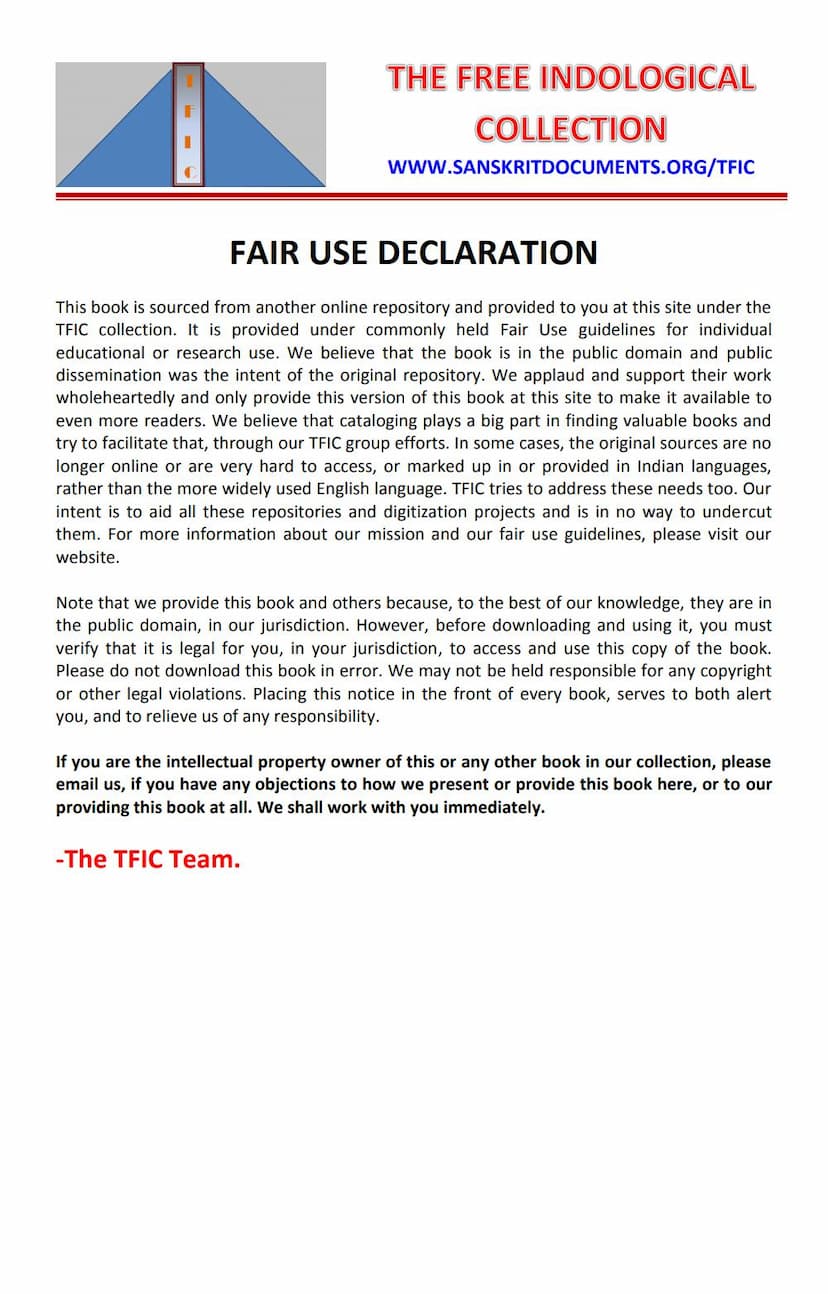Jain Vivek Vani Yane Jain Dharm Sara Sangraha Part 01
Added to library: September 2, 2025

Summary
Here's a comprehensive summary of the Jain text "Jain Vivek Vani yane Jain Dharm Sara Sangraha Part 01," based on the provided text:
Book Title: Jain Vivek Vani yane Jain Dharm Sara Sangraha Part 01 Author: Ghelabhai Liladhar Publisher: Ghelabhai Liladhar Publication Year: 1888 (Samvat 1944)
Overall Purpose and Scope:
"Jain Vivek Vani yane Jain Dharm Sara Sangraha Part 01" is a foundational compilation of Jain principles, practices, and devotional literature, primarily aimed at making essential knowledge accessible to the Jain community, particularly lay followers (Shravaks). The author notes that while larger, more detailed texts exist, they are often inaccessible or too expensive for many. Therefore, this book aims to extract the essence and valuable aspects from various prominent Jain scriptures like Ratnasaar and Prakarankarak, supplemented with new material, to provide a comprehensive yet concise guide in Gujarati. The title itself, "Jain Dharm Sara Sangraha," signifies its intent to be a collection of the core essence of Jainism.
Key Themes and Content Areas:
The book is structured as a collection of various devotional hymns, prayers, rituals, and moral teachings, reflecting the devotional and practical aspects of Jainism. Based on the detailed index provided, the book covers a wide range of topics, including:
-
Core Jain Concepts and Practices:
- Navkar Mantra: The book heavily emphasizes the significance and chanting of the Navkar Mantra, considering it the most auspicious and powerful mantra in Jainism. It includes explanations of its components and benefits.
- Panch Parmeshthi: Devotion and reverence towards the five supreme beings (Arihanta, Siddha, Acharya, Upadhyaya, Sadhu) are central themes.
- Rituals and Procedures: Detailed descriptions of various Jain rituals are provided, including:
- Pratikraman: Instructions for daily (Dahvasik), fortnightly (Pakshik), four-monthly (Choumasik), and annual (Samvatsarik) Pratikraman, which are confession and repentance rituals.
- Puja Vidhi: Procedures for various types of worship (Puja), such as the Snatra Puja and Sattar Bhedi Puja.
- Chaitya Vandan: Salutations and praises to the Tirthankaras and their temples.
- Upasarga Har Stavan: Hymns for removing obstacles and afflictions.
- Guru Vandana: Reverence and prayers for spiritual teachers.
- Samayik: Instructions for practicing equanimity and meditation.
- Upavasa and Vratas: The text includes chapters on various vows and observances, including the "Dash Pachkhan" (ten types of fasting/vows).
-
Devotional Literature (Bhajans, Stotras, Sijay): A significant portion of the book is dedicated to devotional songs (Sijay), hymns (Stotras), and verses (Dohra, Geets), often arranged in different musical meters (Raags). These devotional pieces are primarily in praise of the Tirthankaras, showcasing their virtues and miraculous deeds. The index lists numerous stanzas dedicated to each of the 24 Tirthankaras, as well as other revered figures.
-
Ethical Teachings and Moral Guidance:
- Sheel (Chastity/Virtue): The book includes specific sections on the importance of chastity and moral conduct, offering guidance for both men and women.
- Ahimsa (Non-violence): The principle of Jivdaya (compassion for living beings) is implied throughout the devotional content and explicitly mentioned in some Sijay.
- Kashay (Passions): Sections address the control of anger, pride, delusion, and greed (Krodh, Maan, Maya, Lobh).
- Abstinence from Forbidden Items: Advice against consuming tobacco (Tamaku) and refraining from night meals (Ratri Bhojan) is included.
- Advice for Shravaks: Specific teachings and advice are given for lay followers on how to conduct their lives according to Jain principles.
-
Illustrative Stories and Examples: The text likely includes anecdotes and stories that illustrate the principles of Jainism, such as the virtues of adherence to vows or the consequences of misconduct.
-
Specific Practices and Observances:
- Chaitra, Vaisakha, Jyeshtha: Sections likely discuss practices related to these months.
- Pachkhan (Vows): Detailed explanations of various vows, from simple ones like Navkarshi (breaking fast after sunrise) to more rigorous ones like Ayambil (eating food cooked with boiled water and minimal spices) and Tivihar (abstaining from water and food for a period).
Structure and Organization:
The book appears to be a compendium, organized thematically with a detailed index listing various chapters and sections. The devotional literature is often categorized by the Tirthankara it praises or by the type of devotional song (Sijay, Lavani, Ras). The inclusion of specific rituals like Pratikraman further highlights its practical orientation.
Significance of the Text:
- Accessibility: It serves as a readily available resource for the Jain community, consolidating essential religious knowledge and practices.
- Devotional Foundation: It provides a rich collection of devotional literature, fostering a connection with the Tirthankaras and the core tenets of Jainism.
- Ethical Guidance: It reinforces the importance of moral conduct and the control of passions for spiritual progress.
- Preservation of Tradition: By compiling these texts, the book contributes to the preservation and transmission of Jain traditions and devotional heritage.
Fair Use Declaration:
The text includes a Fair Use Declaration from "The Free Indological Collection" (TFIC) of www.sanskritdocuments.org. This declaration states that the book is provided for individual educational or research use under Fair Use guidelines, believing it to be in the public domain. The TFIC team aims to make valuable books available to more readers, especially when original sources are difficult to access or only available in Indian languages. They express support for digitization projects and aim not to undercut original repositories.
In essence, "Jain Vivek Vani yane Jain Dharm Sara Sangraha Part 01" is a valuable and comprehensive resource that encapsulates the spiritual and practical essence of Jainism, serving as a guide for devotees to understand and practice their faith.